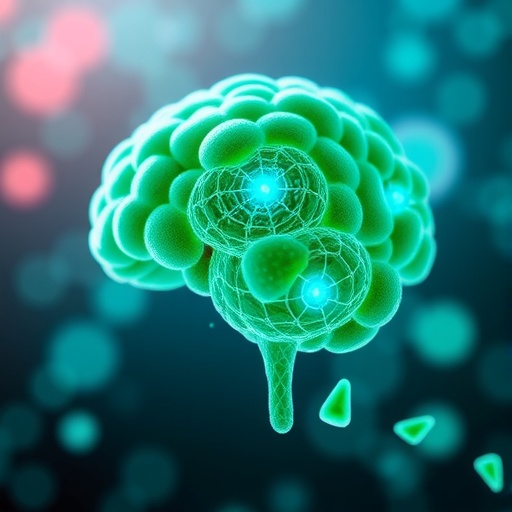In recent years, the field of bioethics has gained increased attention, particularly in the context of rapidly advancing biotechnologies. A significant development in this area is the establishment of guidelines for human organoids in China, as explored in the article by Zhou, Lei, and Han, titled “Charting bioethical frontiers: China’s human organoid guidelines in a global context.” This groundbreaking work sheds light on how bioethical considerations shape research policies, with the potential to influence global practices and standards in biomedical research.
Organoids, three-dimensional miniaturized organs grown from stem cells, represent a technological breakthrough in regenerative medicine and drug development. These organoids closely mimic the architecture and functionality of real human organs, providing researchers with invaluable models for studying human biology and disease. However, as their applications expand, so too do the ethical dilemmas associated with their use, particularly regarding human subjects and the implications of manipulating human biology.
The Chinese guidelines offer a national framework that aims to address these ethical concerns while promoting innovation in research. By advocating for responsible practices in organoid research, the guidelines provide a necessary balance between scientific progress and ethical accountability. This regulatory framework is pivotal for ensuring that research adheres to high ethical standards and respects the dignity of human life.
In crafting these guidelines, Chinese authorities have taken into account the international discourse surrounding bioethics. The comparison of China’s regulatory landscape with other countries illuminates the diversity of approaches to ethical issues in organoid research. For instance, countries like the United States and members of the European Union have their own sets of guidelines, but they may approach genetic editing and organoid research with differing levels of scrutiny and ethical considerations. The ramifications of these differences could lead to a range of practices that may influence the global research community.
Moreover, the guidelines introduced in China address specific ethical concerns such as consent, the potential for commercialization of organoid technology, and the overarching implications of human experimentation. Consent, in particular, is a fundamental tenet of ethical research. Researchers must ensure that participants fully understand the nature of their involvement and the potential risks. This requires transparency and effective communication, which can often be challenging in a rapidly evolving field.
The commercialization of organoids also raises critical ethical questions. As biotech companies express interest in harnessing organoids for profit, the guidelines stress the importance of scientific integrity and the ethical distribution of benefits derived from research. The profit-driven motives of corporations may conflict with the altruistic goals of advancing human health, thereby necessitating a careful examination of the commercial landscape surrounding organoid technology.
Furthermore, this regulatory framework emphasizes the need for ongoing education and training for researchers, ensuring they are well-versed in both the technical and ethical aspects of their work. By fostering a culture of ethical awareness, the guidelines seek to cultivate responsible scientists who prioritize ethical considerations alongside technological advancement. This educational component is crucial, as the risks associated with organoid research require a rigorously trained workforce dedicated to upholding ethical standards.
Integrating the cultural context of China into these guidelines adds another layer of complexity. Traditional Chinese ethical frameworks often emphasize harmony with nature, a concept that may shape attitudes toward biotechnological interventions. This cultural approach influences the discussion around the manipulation of human biology, underscoring the need for guidelines that resonate with the values of the society they serve. By doing so, the guidelines make a concerted effort to engage with public sentiment and foster trust in scientific research.
The article also places the Chinese guidelines within the broader global context, illustrating how they could serve as a model for other nations. As countries grapple with similar ethical dilemmas surrounding biotechnologies, China’s proactive stance may inspire international collaborations and discussions aimed at refining bioethical practices. Such collaborations are essential in developing cohesive global standards that address the nuances of organoid research and other emerging biotechnologies.
Ultimately, the establishment of these guidelines marks a critical juncture in the ongoing discourse surrounding bioethics and biomedical research. As organoid technology evolves, the ethical considerations it raises will undoubtedly continue to expand. China’s efforts to develop a robust regulatory framework not only reflects its commitment to ethical research but also highlights the importance of collaboration and dialogue in navigating the complexities of modern science.
In conclusion, the guidelines set forth by Zhou, Lei, and Han open a new chapter in the conversation about bioethics. By addressing critical ethical issues in the realm of organoid research, they provide a comprehensive framework that could influence policies worldwide. As we stand on the cusp of a new era in biomedical research, the importance of ethical considerations cannot be overstated, as they will play a crucial role in shaping the future of science and the relationship between humanity and technology.
Subject of Research: Human organoid guidelines and bioethics in biomedical research.
Article Title: Charting bioethical frontiers: China’s human organoid guidelines in a global context.
Article References:
Zhou, LB., Lei, YT. & Han, XX. Charting bioethical frontiers: China’s human organoid guidelines in a global context.
Military Med Res 12, 64 (2025). https://doi.org/10.1186/s40779-025-00651-x
Image Credits: AI Generated
DOI:
Keywords: bioethics, organoids, China, biomedical research, guidelines, ethical framework, human experimentation, commercialization, consent, cultural context, biotechnology.
Tags: biomedical research policiesChina organoid guidelinesethical accountability in researchethical considerations in biotechnologyglobal bioethicsglobal standards in biomedical ethicshuman biology manipulation ethicshuman organoids researchorganoid technology advancementsregenerative medicine ethicsresponsible research practicesstem cell technology implications





